Dark, brooding atmospheres with intense, pulsating rhythms complemented by searing guitar work and haunting, enigmatic lyrics roughly sum up the wild ride that is the self-titled debut album by Course Of Empire. If an album can be called "dystopian," which is usually reserved for science fiction novels and movies, Course Of Empire may qualify. Thanks to hypnotic, almost tribal percussion via a pair of drummers, the band stretches from tabla jams to industrial beats to ambient drone guitar to poppy new wave, all drenched in a very specific moodiness. Defined by its experimental and uncompromising nature, the album is an excellent example of the 1980s/90s crossroads that alternative music found itself as college rock rose to prominence on MTV and radio, resulting in the band re-releasing the album in 1992 via a major label deal with Zoo Entertainment.
Songs In This Episode
Intro - Ptah
17:40 - Peace Child
23:14 - Copious
27:01 - Dawn Of The Great Eastern Sun
35:58 - Sins of the Fathers
Outro - Mountains Of The Spoken
Support the podcast and join our private Dischord at the DMO UNION at Patreon.
Listen to the episode archive at DigMeOutPodcast.com.
Subscribe on Apple Podcasts
Subscribe on Spotify
Highlights
(00:17) Tim and Jay introduce the episode and thank their Patreon supporters.
(00:32) Mention of a mistake made in the previous episode's promotion.
(00:57) Discussion about scheduling episodes and forgetting to put up a poll for the current episode.
(01:21) Eric Peterson is welcomed back to the show.
(01:35) Eric mentions that he sometimes likes to surprise the audience with his album choices.
(01:59) Teasing about the album for the next year.
(02:32) Discussion about the backdrop used in the Zoom call and how it relates to the episode.
(02:55) Eric's 20th appearance on the show is acknowledged.
(03:12) Reflection on past albums discussed on the show.
(03:53) Introduction to the album of the episode: the self-titled record from "Course of Empire" from 1990.
(04:10) Jay mentions he had heard of "Course of Empire" from previous polls.
(04:57) Tim asks Eric how he discovered the band. Eric mentions seeing a video from their second album on either "Headbangers Ball" or "120 Minutes."
(05:39) Background on the band "Course of Empire": They're from Dallas, Texas. Two members, Mike Graff and Anthony Headley, were writing music for film projects at SMU in the '80s. They later formed the band.
(06:00) The band's name, "Course of Empire," is based on a series of paintings from the 1830s by Thomas Cole.
(06:29) The band's early influences include Ministry, Killing Joke, and KMFDM.
(06:55) The band decided to have two drummers after witnessing a performance by The Kodo drummers, a professional Taiko drumming troop from Japan.
(07:32) Chad Lovell took a hiatus from the band, and Dave Abbruzzese (later of Pearl Jam) stepped in to record a song for them.
(07:59) Tim uses Pearl Jam's "Ten" album as his Zoom backdrop because of the connection with Dave Abbruzzese.
(08:45) The "Course of Empire" self-titled album was released in November 1990 and re-released in August 1991 on Zoo Entertainment.
(09:01) Other bands associated with Zoo Entertainment are mentioned.
(09:28) The band's subsequent albums and label changes are discussed.
12:02) Discussion about the band's lineup changes, with Michael Jerome taking over on drums.
(12:27) The band's third record was mastered by Bob Ludwig and remastered by Howie Weinberg. They had a song on the "Dark City" soundtrack.
(12:47) They toured with Rob Halford's industrial rock project "Two" but the tour got canceled after two weeks. They then opened for "Sisters of Mercy."
(13:10) Due to label issues and the canceled tour, the band decided to disband in 1998.
(13:37) After the band's breakup, they released some compilations and demos. They also did a benefit concert for Chad Lovell, one of the band members, after he suffered a traumatic brain injury in 2019.
(14:14) Discussion about the band's appearances in a documentary about alternative rock in the '90s.
(14:30) Michael Jerome, the drummer, played with several other bands and artists, including Better Than Ezra, Richard Thompson, Taj Mahal, Shelby Lynne, and others.
(16:48) Jay starts discussing the "Course of Empire" debut album.
(16:58) Jay appreciates the album's diversity, rich sonic layers, and the emphasis on drums.
(17:18) The vocals have a brooding, dark poet approach, reminiscent of Jim Morrison. The vocal delivery varies, with whispers, louder parts, and inflections.
(17:53) The guitars use a lot of effects, creating unique sounds and riffs.
(18:49) The band covers a lot of ground musically, from heavy rock to '80s alternative to industrial sounds.
(23:06) Jay highlights the band's ability to change their sound and style, making them musical chameleons.
(24:24) Tim agrees with Jay's assessment of the album being unique and interesting.
25:12) Tim discusses the unexpected acoustic guitar in the song "Copus" over an industrial-like backdrop, noting its uniqueness.
(25:51) The album is described as pushing together sounds that don't necessarily make sense on paper but work in execution.
(26:46) The song "Dawn of the Great Eastern Sun" is likened to meditation music, contrasting with other tracks on the album.
(28:00) Tim mentions the bell chime in "Coming of the Century" and its similarity to Faith No More's style.
(28:46) Tim wonders about the commercial viability of the album given its unique and varied sound.
(31:42) Eric shares his perspective, describing the first song "P" as one of the scariest songs he's ever heard due to its eerie build and explosive nature.
(32:37) Eric hears influences from bands like Killing Joke and King's X in the album. He also notes a psych influence and mentions similarities to Queensrÿche's albums from the late '80s.
(33:05) Eric appreciates the album's organic build and release, noting that it doesn't feel disjointed despite its varied sounds.
(34:57) Eric mentions the last song as a lighter, more hopeful track that provides a release from the album's heavier themes.
(35:07) Tim compares the start of the album to Iron Maiden's style, with an ominous introduction leading into a metal sound.
(35:46) Tim highlights the song "Sins of the Fathers" as a standout ballad, comparing its timeless quality to the song "Rise Above" by Life, Sex & Death.
(37:30) Tim agrees with Eric about the theatrical and dramatic undercurrent in many of the songs, likely influenced by the band's experience soundtracking movies.
(38:01) The band's compositions are praised for their use of dynamics and their ability to change direction within songs.
(38:47) The soft-loud dynamic is discussed, noting that it's different from the typical Pixies' soft-loud style.
(39:03) When listening through headphones, there are whispers and other sounds buried throughout the record that aren't as noticeable on stereo speakers.
(39:40) Jay mentions that the album is light on hooks, making it challenging to get into initially. The memorable parts are often not the vocals but the drums.
(40:28) Jay is unsure about some of the ambient and industrial sounds on repeated listens. He feels that the heavy industrial turns early in the record overshadow some of the more subtle parts.
(41:42) Jay comments on the world music ending of the album, feeling it's too long and could be condensed.
(42:22) Tim mentions that when Zoo reissued the album, the mixes changed, and the song lengths changed. He believes the album needs to be consumed as a whole rather than individual songs.
(44:38) Eric points out two things that didn't work for him: the toas, which felt too long and out of place, and the back half of the record, which didn't feel as strong as the first half.
(45:37) Eric emphasizes that the album should be consumed as a whole, with only a few tracks suitable for mixes.
(46:02) The album is described as very much a record of its time, reflecting the anxieties of the upcoming millennium.
(47:24) The cultural context of the time is discussed, noting the underground buzz in the music scene before bands like Nirvana broke into the mainstream.
(49:07) Comparisons are made to the band's label mates, Tool, especially their early records which have a similar vibe.
(49:18) The band's sound is likened to Tool's early records, suggesting they should have opened for Tool.
(49:48) The transition of alternative music taking over from '80s metal is discussed, with reference to songs like "Been Caught Stealing" by Jane's Addiction.
(50:34) A recommendation to listen to the single from the band's second record, which has a more mainstream industrial vibe.
(51:04) Mention of a single release of "Infested" that includes a cover of Fear's "Let's Have a War."
(52:19) Jay's final thoughts: He rates it as a "worthy album," appreciating its eclecticism and genre-jumping. He finds the album cohesive and unique.
(53:48) Tim's final thoughts: He also rates it as a "worthy album," emphasizing that it should be consumed as a whole. He finds the album compelling and is interested in exploring more of the band's discography.
(55:00) Mention of a label that reissues music from Dallas Fort Worth bands that no longer exist, including Flickerstick.
(55:22) A suggestion to do an episode on "Bands on the Run," a reality show from the 2000s.
(55:48) Eric's final thoughts: He rates it as a "worthy album," appreciating it as a document of its time. He believes it's a unique record that's not easily digested but should be heard.
(57:46) Recommendation to check out the video for "Infested" on YouTube for its '90s computer-generated effects.
(58:03) Mention of the DMO Union and how listeners can join to suggest records, vote in polls, and access bonus episodes.
(59:05) Mention of the Box newsletter, which covers new releases related to '80s, '90s, and 2000s music, movies, books, and TV shows.
(59:34) Tease of an upcoming roundtable episode where they discuss their favorite discoveries of the year.
(59:59) Encouragement for listeners to leave feedback on Apple Podcasts.


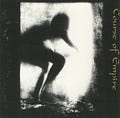


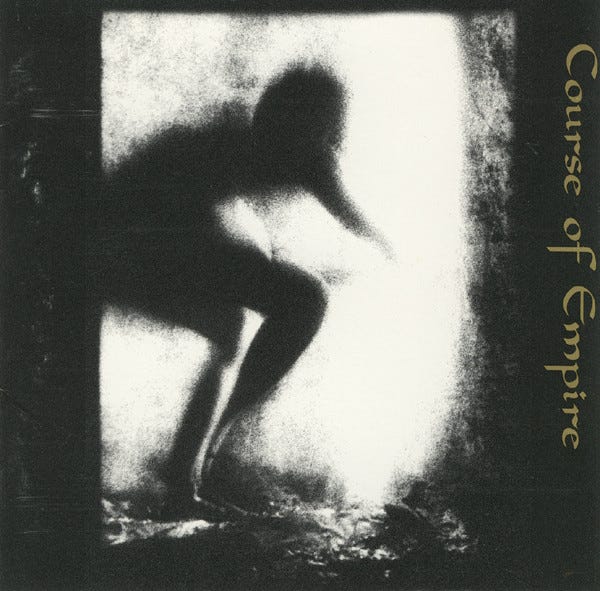

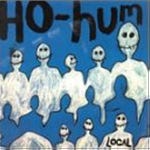
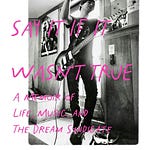
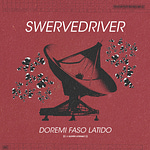
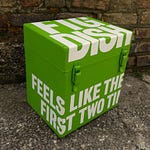
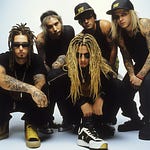
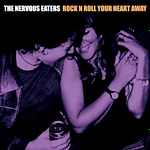

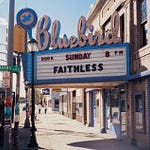
Course Of Empire by Course Of Empire | 90s Album Review